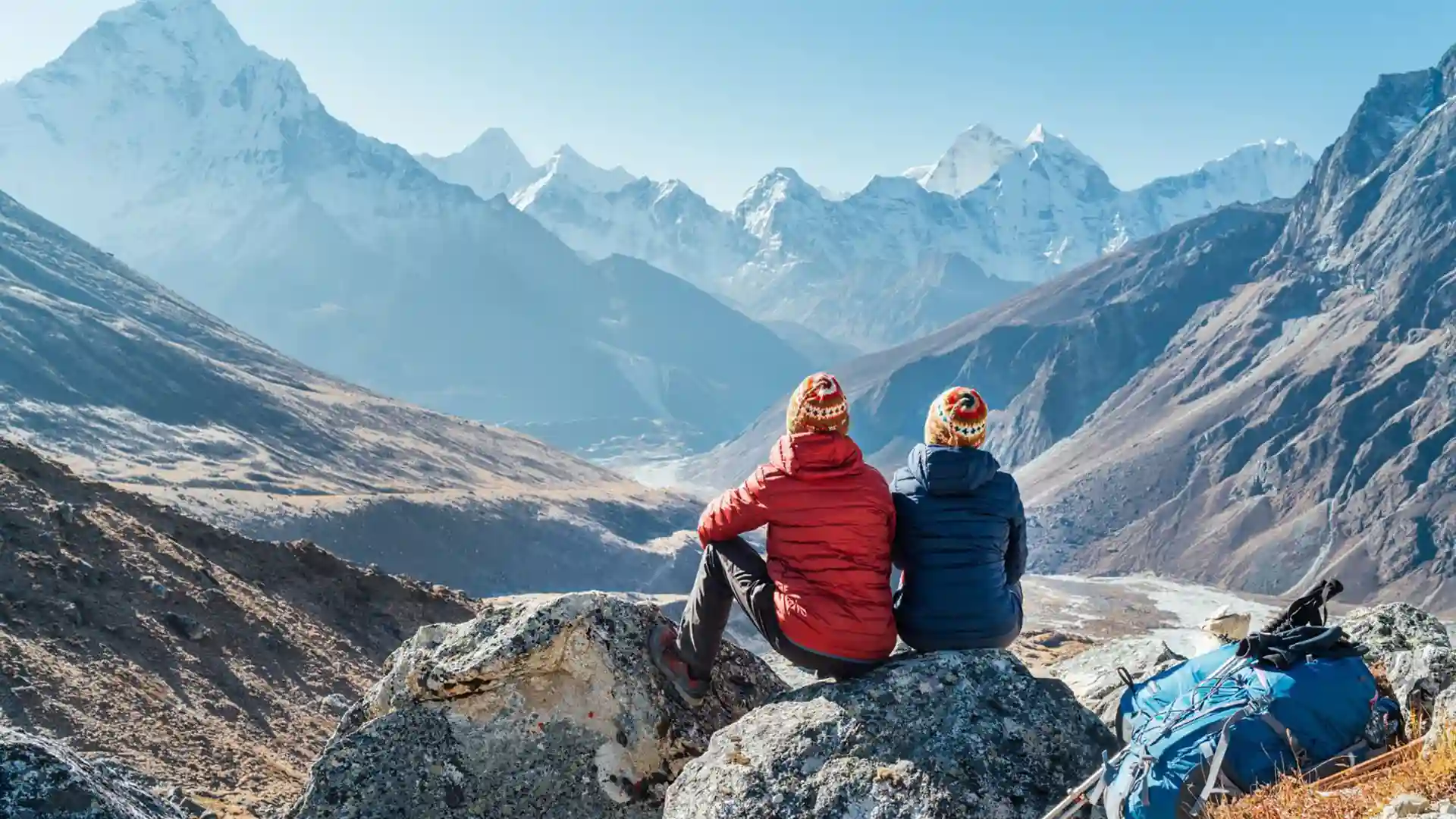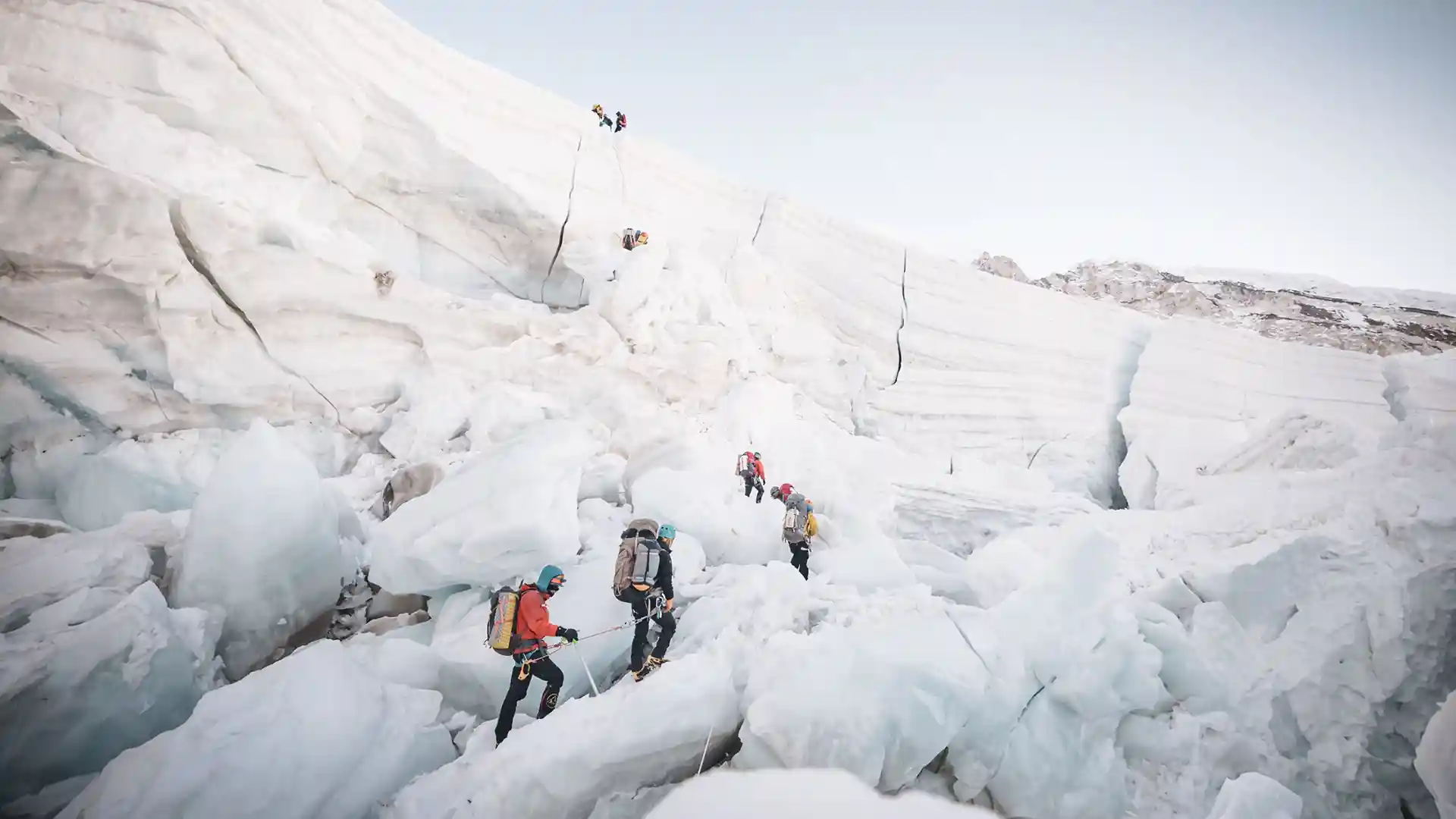Completing the Everest Base Camp Trek has always fascinated – to the doer, and the viewer.
Embarking on this unforgettable trek in Nepal is an avid adventure seeker’s dream. Nestled in the heart of the Himalayas, this trek offers an unparalleled experience: breathtaking landscapes, unique cultural encounters, and a sense of accomplishment that few other journeys can match.
But there are challenges too. Reaching Everest Base Camp, located at an altitude of 5,364 meters (17,598 feet), is a journey that needs to be planned well and in detail. And one of the most crucial factors that can make or break your trek is having a good Sherpa guide by your side.
The Role of a Sherpa
To understand the importance of having a Sherpa by your side, it is crucial to understand a basic scientific fact – Sherpas are born in the Himalayas. And hence, their genetic coding is designed in such a manner which gifts them the physical and mental makeover to not only survive, but thrive in challenging Himalayan conditions. Demure looking & soft spoken, The Sherpa body is strong to withstand adversities presented by the higher Himalayan peaks. And the Sherpa heart is soft enough to have the empathy to understand your physical and mental challenges. The Sherpa is not your guide. The sherpa is your best friend, your physical trainer and your mental counsellor. A good sherpa is the difference between life & death when the going gets tough.
Their deep-rooted knowledge of the terrain and high-altitude climbing skills make them indispensable for trekkers tackling the Everest Base Camp.
In plain simple words, it is not a wise decision to plan the Everest base Camp trek without a Sherpa.
Few reasons why they are a great companion in your journey of a lifetime:
Expert Navigation and Route Knowledge
The Everest Base Camp Trek traverses a demanding terrain: rocky paths, narrow trails, and suspension bridges over glacial rivers. A Sherpa guide has an intimate knowledge of these trails, which plays a significant role in enhancing your safety & alleviating your overall EBC experience. They are familiar with the finer points of the route, including potential hazards such as unstable rocks or sudden weather changes, allowing them to navigate you to safety.

Altitude Acclimatization
A significant aspect of trekking to Everest Base Camp is the risk of high altitude sickness. The thin air at high altitudes can cause symptoms like headaches, nausea, and dizziness. Acute Mountain Sickness (AMS) can happen anytime, even if you have trekked multiple times before and hence should never be taken for granted. While a good travel company will structure your trek in a way that you get adequate time for acclimatisation (rest days & gradual altitude increase). But a good sherpa is experienced to recognize early signs of altitude sickness. And they are adept at implementing strategies to mitigate its effects, ensuring you stay healthy & safe and complete your journey. They are literally your shadow.
Cultural Insight and Local Knowledge
Sherpas are more than just guides; they are Nepal’s cultural ambassadors. They bring to you, insights into local customs, traditions, and the way of life in the Everest region. During the course of your journey, they may narrate a tale or two, explaining the significance of various religious sites, festivals, and local practices. Listening to their stories not only helps you divert your mind away from the effort going into the trek, but also allows you to absorb the terrain and its culture, making it a very wholesome experience for your physical & spiritual self.
Emergency Response and Safety
The Everest Base camp is a camp designed by man, but at the mercy of mother nature. And as expected in mountains, or on adventure trips, emergencies can occur.
A seasoned Sherpa, registered with a reliable travel company, is trained to handle a range of situations, from minor injuries to more severe medical emergencies. Their knowledge & experience of first aid and their ability to coordinate with local medical facilities and authorities in the local language are crucial to ensure a swift and effective response in case something goes wrong. They carry essential gear and supplies required in emergency situations, such as high-altitude sickness medications and emergency communication devices.
- Logistical Support: One cannot stress enough on the importance of meticulous planning and logistical support for the Everest Base Camp trek. While a good travel company will arrange all these for you, it is the company appointed Sherpas who are on field with you and will handle all of these in terms of coordination on site. These include vital aspects like arranging accommodation, meals, and permits. The Sherpa will ensure that your trek is as smooth and stress-free as possible by managing all aspects, giving you the space to enjoy the trek instead of worrying about other aspects.
- Motivation and Companionship: As Edmund Hilary said, “it is not the mountain that you conquer, but yourself.” The trek to Everest Base Camp is physically and mentally. And there may be moment, when you may want to question your purpose or think about giving up. At moments like these, the support and encouragement extended by your Sherpa is what will keep you going. Their positive energy is infectious and their words of encouragement are impactful, especially during challenging stretches of the trek. Their sheer presence provides not just physical support but also emotional strength, helping you stay motivated and focused on your goal.
- Environmental Stewardship: Sherpas are true sons of the soil! They have a connect to their environment and are often involved in conservation efforts to conserve the Everest region. By undertaking a trek with a Sherpa, you support local initiatives aimed at preserving the natural beauty and cultural heritage of the area. Most Sherpas are aware of conservation methods and local practices; they take effective steps to ensure that your trek has a minimal negative impact on the environment. This is something you will miss out if you are not trekking with a Sherpa.

Attributes of a good Sherpa
The right Sherpa can negatively or positively impact the quality of your trip. Some attributes of a good Sherpa:
- Experience and Qualifications: A reliable travel company will have Sherpas with extensive experience and proper training. Many Sherpas are certified by organizations like the Nepal Mountaineering Association, which ensures they have the necessary skills and knowledge. Different treks call for different abilities depending on the level of ease and difficulty.
- Compatibility: A good Sherpa will gauge your comfort level and strike a rapport with you – one of mutual trust and cooperation. Open communication and mutual respect are the key ingredients to a successful trek.
- Safety Practices: Certified Sherpas from reputed travel companies will ensure that they follow stringent safety practices and that they are equipped with the necessary gear and emergency supplies.
Trekking to Everest Base Camp can be a life changing experience; but it’s one that comes with its own set of challenges. However, having a good Sherpa guide can turn your adversities into success! A good Sherpa is not a luxury—it’s a necessity for a safe, enjoyable, and wholesome experience. From navigating the treacherous terrain to providing cultural insights and managing emergencies, a Sherpa’s role is indispensable. As you prepare for your trek, remember that a trustworthy travel company will support you with a knowledgeable, experienced, and supportive Sherpa and this will turn your Everest Base Camp adventure into a wonderful experience.

